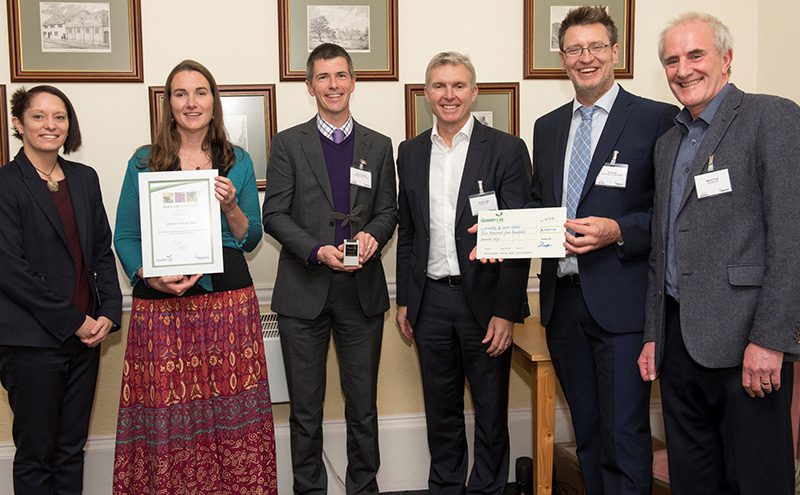
A biodiversity project carried out by a team from the University of South Wales has won the UK research section of the Quarry Life Awards 2018, an international award organised by the parent company of cement firm Hanson Group.
The project, which looked at the value of translocating ancient woodland soils within quarried landscapes at Forest Wood quarry, Mid-Glamorgan, claimed the £4,400 first prize at an awards ceremony held at Hanson’s former sand and gravel quarry at Middleton Hall, Tamworth.
This year is the fourth biennial Quarry Life Awards – an international competition organised by Hanson’s parent company HeidelbergCement Group to raise the understanding of the biological value of mining sites both during and after extraction. Over 300 research projects from 25 countries entered the award, with 110 projects taken through to the research phase.
The Forest Wood study, led by Dr. David Lee, senior lecturer in wildlife ecology, considered the benefits of moving woodland soils to other areas in the quarry to enhance ecological resilience and aid habitat regeneration post-extraction.
Martin Crow, national sustainability manager at Hanson UK, said: “This project stood out as it combined a strong scientific approach, creating a lot of knowledge, with great potential for ongoing monitoring. The judges believe it will provide the scientific data to inform some important decisions in the future about soil translocation.”
Second place in the research category, receiving a £2,200 prize was Bath Spa University’s project on wetland creation, carried out at Hanson’s Chipping Sodbury Quarry in South Gloucestershire. The University of the West of England’s project on the part limestone quarry habitats can play in protecting the endangered European eel, also carried out at Chipping Sodbury, received the runners-up, third place award.
This year there was also an award for the best research project submitted by a community group. The winner, also securing a further £4,400 prize, was High Batts Nature Reserve in Ripon, North Yorkshire, for its ‘In at the start’ project to build a long-term partnership between the local community and the newly open Pennycroft quarry extension. Tices Meadow biodiversity trail in Farnham, Surrey, was awarded the second prize of £2,200. A project to create an artificial nesting bank for sand martins at Ketton in Stamford, Leicestershire, was awarded the runners-up third place prize.
The judging panel, which was led by Helen Barnard from the RSPB, was particularly impressed with the high standard of this year’s projects and their potential benefits.
Daniel Cooper, chief executive officer of Hanson UK, who presented the awards, said: “We recognise that our sites are a valuable natural resource and we are committed to maximising the benefits they can provide both for biodiversity and the local communities in which they are situated.”
Both UK winning projects are now put forward to the relevant category of the international competition, where the overall winning project will claim a €30,000 at a ceremony in Brussels later this year.
More information can be found on the Quarry Life Award website: www.quarrylifeaward.com or go to www.hanson.co.uk/en/sustainability for further details on Hanson UK’s approach towards sustainability.







